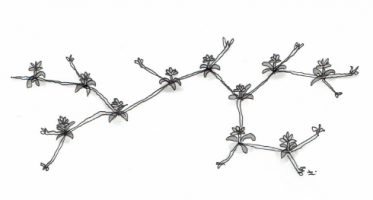Difference between revisions of "Twin Berry"
From World of Entorais Wiki
Jump to navigationJump to searchm (layout) |
(layout and category) |
||
| Line 9: | Line 9: | ||
;Distribution:Sub-tropical and temperate forests and savanna. | ;Distribution:Sub-tropical and temperate forests and savanna. | ||
;Life Cycle:perennial, flowering in the late spring, producing fruit by early summer. If pruned regularly can produce two or three flowering and fruiting cycles through the summer. | ;Life Cycle:perennial, flowering in the late spring, producing fruit by early summer. If pruned regularly can produce two or three flowering and fruiting cycles through the summer. | ||
==Related Species== | |||
==Uses== | ==Uses== | ||
| Line 16: | Line 18: | ||
;Other:<!-- other uses--> | ;Other:<!-- other uses--> | ||
== | ==History== | ||
<!-- unique cultural notes--> | ;Cultural | ||
:<!-- unique cultural notes--> | |||
;Religious | |||
:<!-- unique religious notes--> | |||
==Stories== | ==Stories== | ||
| Line 26: | Line 31: | ||
[[Category:Flora]] | [[Category:Flora]] | ||
[[Category:Flower]] | |||
Latest revision as of 16:22, 7 August 2020
About
- Common Names
- Twin Berry
- Classification
- Herbaceous, Vine, Flower, Fruit
- Description
- An uncommon ground vine with a crooked branching network of runners. The small indigo flowers produce a pair of deep red berries. This fruit is quite tasty, but astringent if not cooked first. The fruit is a depurient and diuretic as well.
Ecology
- Rarity
- Uncommon
- Distribution
- Sub-tropical and temperate forests and savanna.
- Life Cycle
- perennial, flowering in the late spring, producing fruit by early summer. If pruned regularly can produce two or three flowering and fruiting cycles through the summer.
Related Species
Uses
- Cultivation
- wild, and cultivated in gardens.
- Culinary
- Pastry filling, spreads, jams, and jellies
- Medicinal
- depurient (fruit), diuretic (fruit)
- Other
History
- Cultural
- Religious
